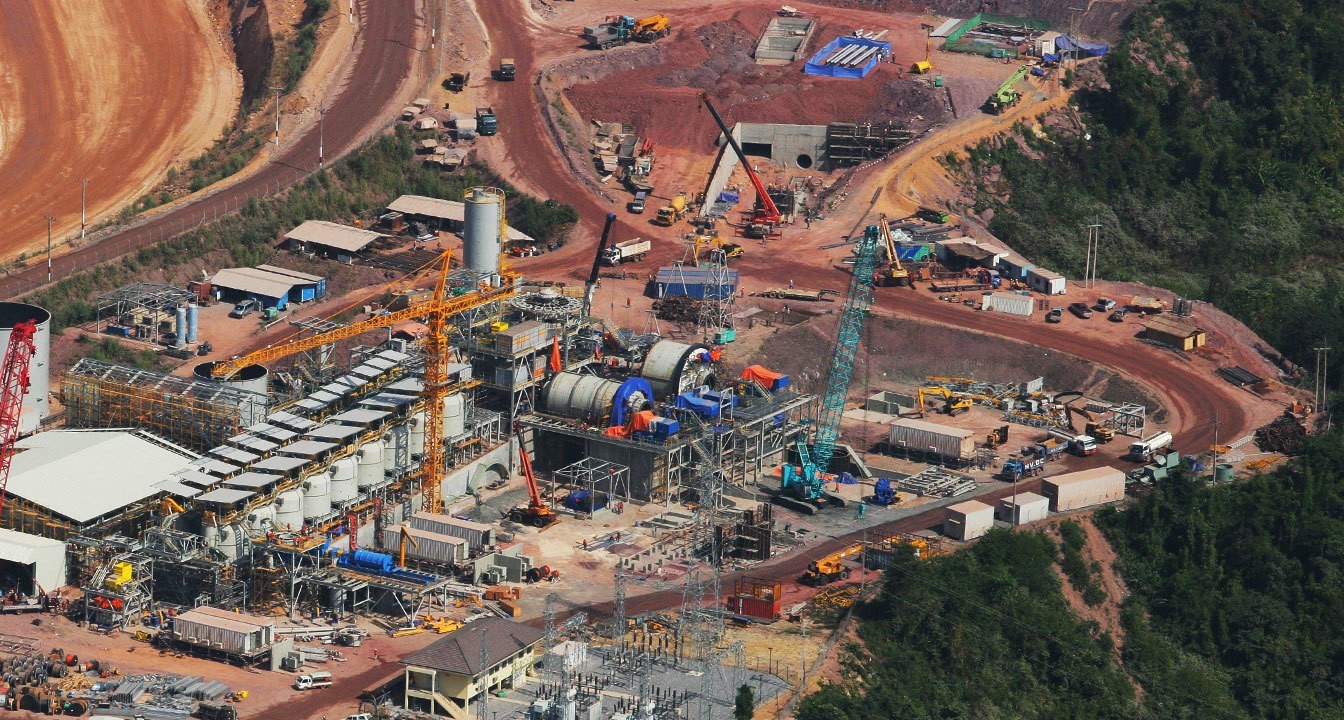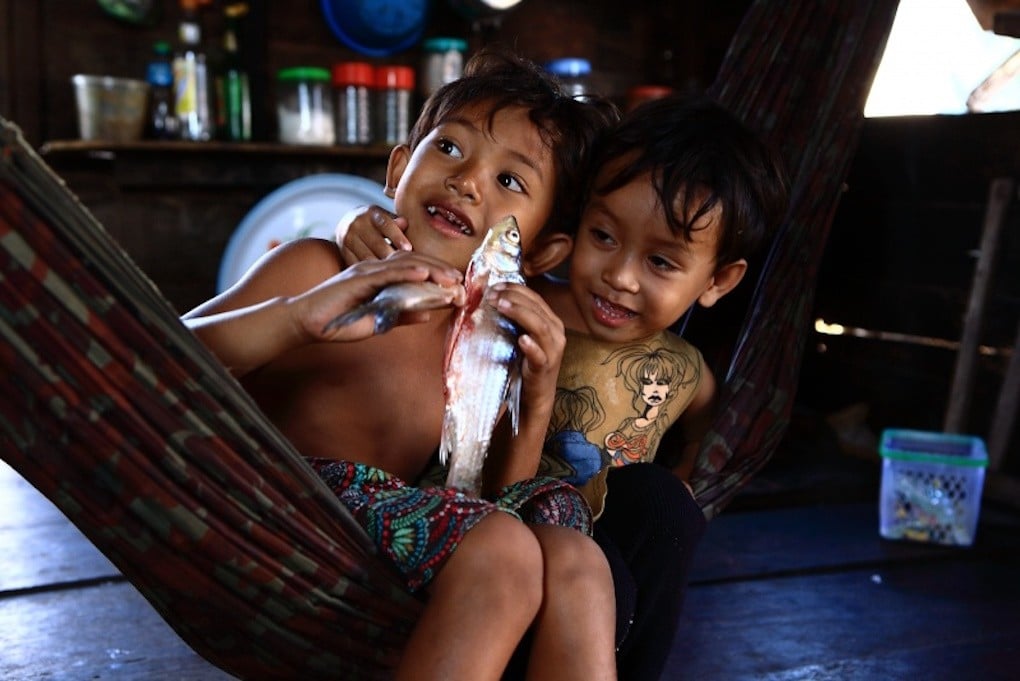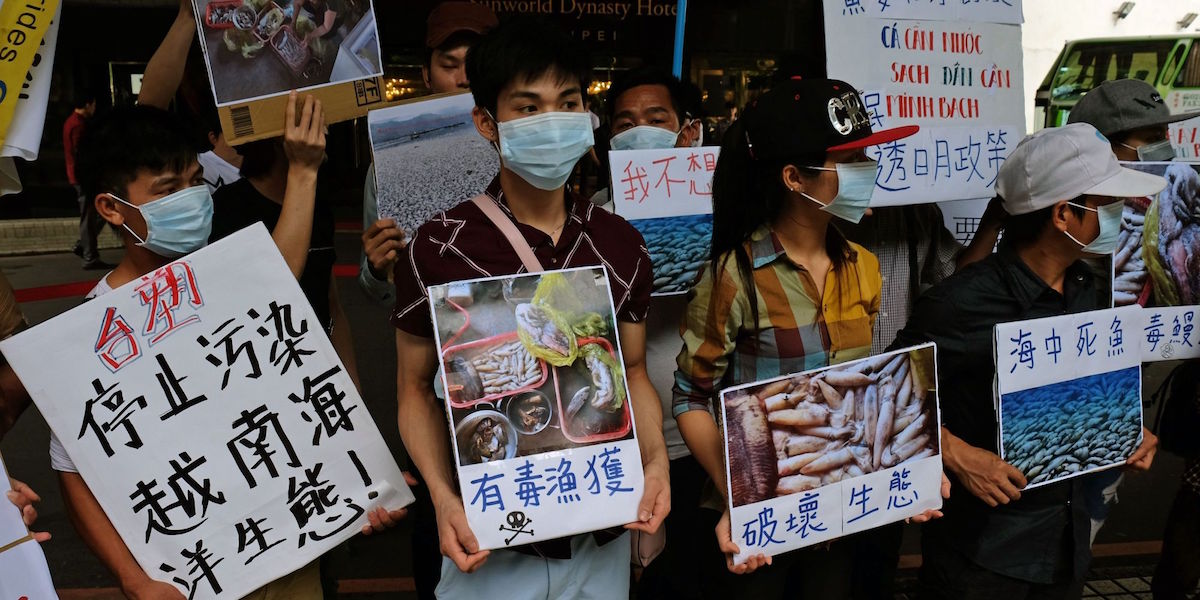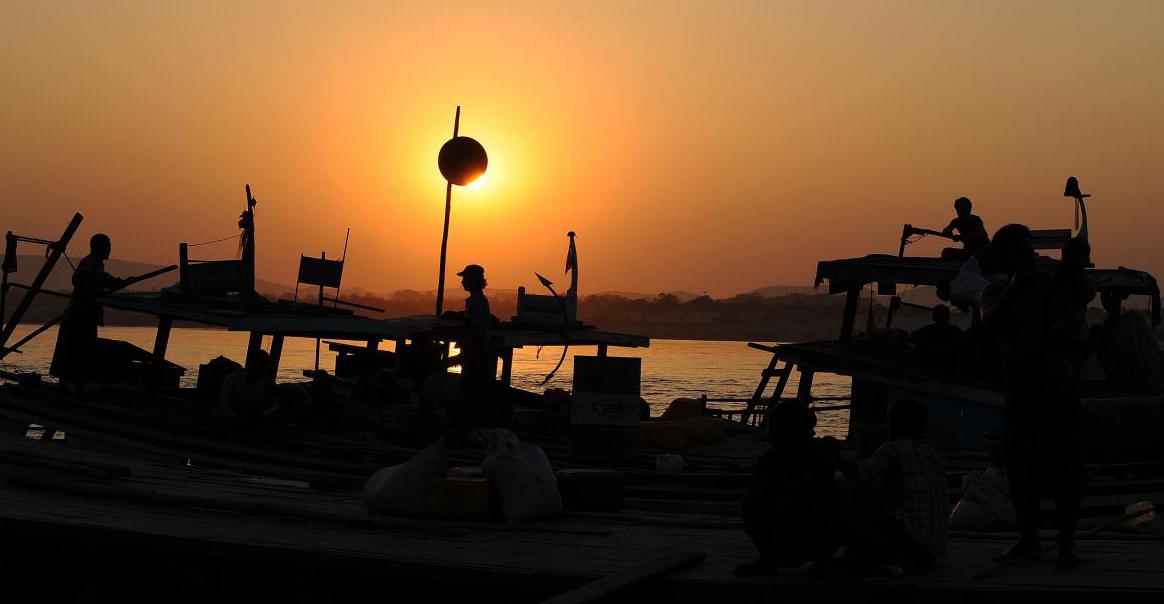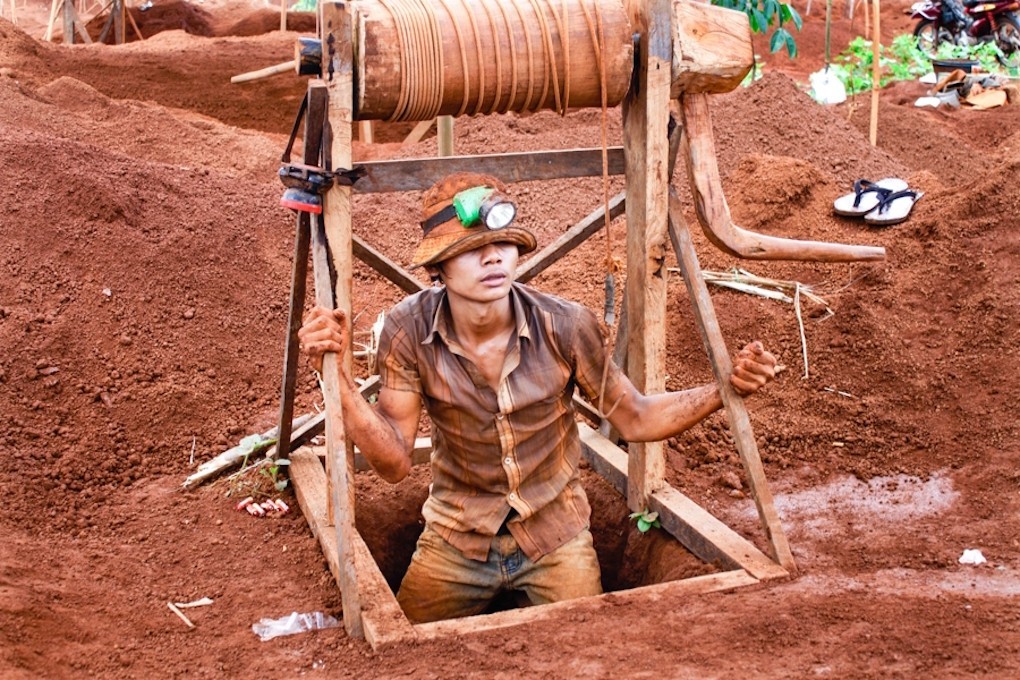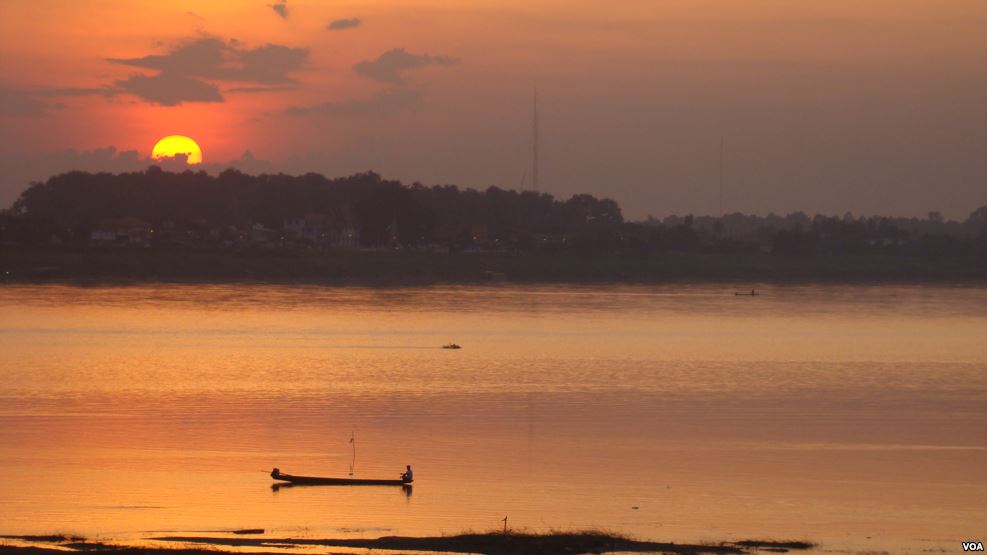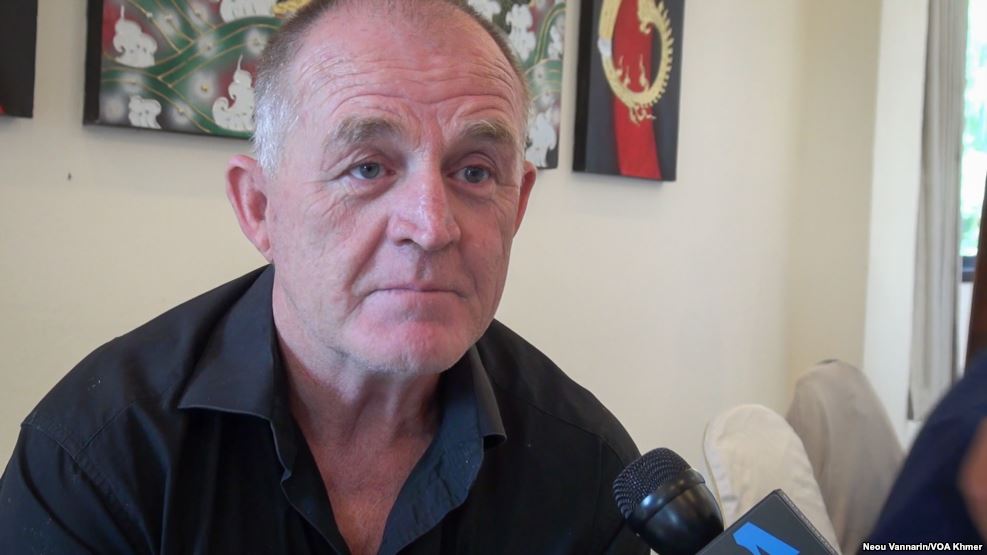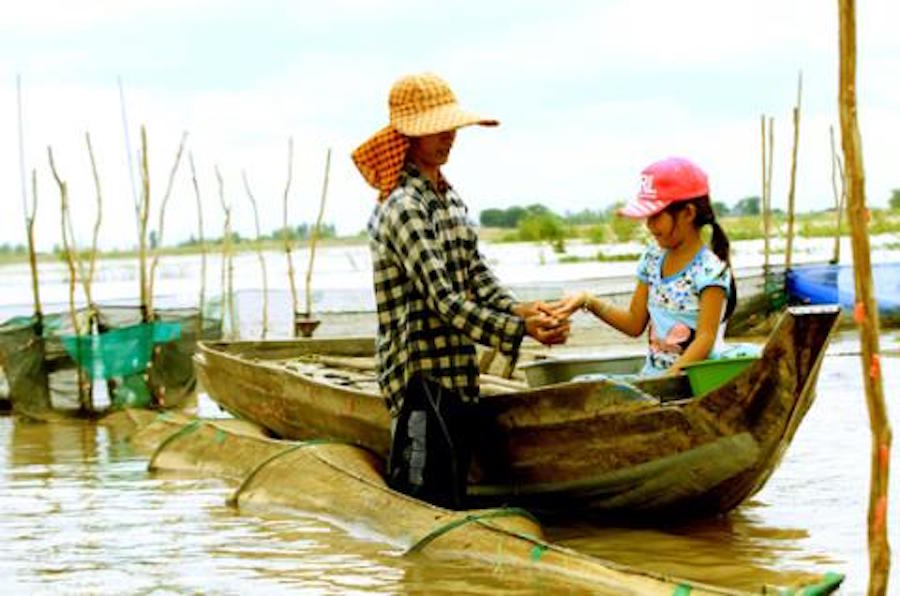Prime Minister Thongloun Sisoulith said yesterday the government will maintain the moratorium on new mining concessions because it needs more time to inspect a number of operations.
Category: Region
Selected environmental stories from media outlets in the Mekong region and beyond.
Report reveals a big dependence on freshwater fish for global food security
Freshwater fish play a surprisingly crucial role in feeding some of the world’s most vulnerable people, according to a study published Monday (Oct. 24) in the Proceedings of the National Academy of Sciences.
“It was eye-opening just how many people are deeply dependent on freshwater fisheries as sources of protein,” says Pete McIntyre, a lead co-author of the study and professor of zoology in the Center for Limnology at the University of Wisconsin–Madison. “Many people in poor nations do not get much animal protein to eat, and freshwater fish provide protein for the nutritional equivalent of 158 million people around the world.”
Landmark public consultations on infrastructure development held in Vientiane
A landmark public consultation in Laos on the draft Regional Guidelines on Public Participation in Environmental Impact Assessment (EIA) was held in Vientiane. More than 100 representatives from private sector companies, communities, non-profit associations, international organizations, government agencies, environmental impact assessment consulting firms gathered today at a public consultation in Vientiane to provide feedback on draft Regional Guidelines on effective Public Participation in Environmental Impact Assessment processes as a way to ensure these processes involve communities.
Chinese firm’s zinc project in central Vietnam sparks environmental concern
A Chinese firm has proposed building a zinc mill at an economic zone in the central Vietnamese province of Thua Thien-Hue, raising a few eyebrows among local experts and members of the public.
In Vietnam, telling the truth is criminal ‘propaganda’
On Oct. 10, police in the south-central province of Khanh Hoa arrested a popular blogger, Nguyen Ngoc Nhu Quynh, 37, who writes under the pen name Mother Mushroom. She is co-founder of a network of independent bloggers who often find themselves in the crosshairs of a regime that strictly controls the news media and does not tolerate dissent. Radio Free Asia quoted the network as protesting that Ms. Quynh is an “activist who has advocated for human rights, improved living conditions for people, and sovereignty for many years.”
Meteorologist advises smaller alternatives to Myitsone megadam
The former director general of the meteorology and hydrology department has proposed an alternative solution to the problem of the stalled Myitsone hydropower dam. Instead of building one destructive and publically reviled mega dam, why not build four smaller hydropower projects instead, he suggested on Facebook yesterday night.
Path to Responsible Mining
In an effort to improve the governance of the Kingdom’s mining industry, with a focus on increasing revenue generation, the government has approved 11 articles largely concerning export permits for mined resources.
“Except for uranium and any reactor [related] mining which is banned from being exported, export permits have to be mainly evaluated for the long-term purpose – based on the comparative advantage and benefit to the economy, society and the environment.”
Meng Saktheara, secretary of state at the ministry told Khmer Times yesterday that the sub-decree is complementary to the existing mining law which had been promulgated since 2001.
“This sub-decree is to be used to manage any kinds of mining production except oil and gas. We do hope that the sub-decree sets strong and clear guidelines for the industry that can attract more foreign investors.”
“It provides us with clear mechanisms to manage the industry, as we will automatically allow exports if the product can be processed locally,” he said, noting the importance of adding value to the country’s mined resources.
Last month, the Ministry of Mines and Energy issued Cambodia’s first industrial mining license to Indian-owned Mesco Gold (Cambodia) to start operating an underground gold mine in Ratanakiri province.
According to ministry data, over 20 gold occurrences, 15 base metals occurrences and 26 iron ore and related occurrences have been identified. Work is continuing on some 60 active concessions to further delineate the country’s mineral wealth, with a particular emphasis on gold, base metals and bauxite.
According to the sub-decree, any mined resource which can be processed locally, and therefore boost its “value-added,” will not be allowed to be exported.
“It can be allowed to be exported if it cannot be processed locally due to the impact [it may cause] to the environment or because the amount of product exceeds local demand,” it said.
According to data from ministry, the before-tax revenue from the mining industry has sharply increased. In 2015 the figure was $17.25 million, up from just $4 million the year before.
Cambodia is at the early stages of mineral resource development. As part of a prospective region with a burgeoning exploration sector, the country has an opportunity to lay the foundations for responsible mining.
Research: Watershed or Powershed? Critical Hydropolitics, China and the ‘Lancang-Mekong Cooperation Framework’
Abstract: The countries sharing the Lancang-Mekong River are entering a new era of hydropolitics with a growing number of hydropower dams throughout the basin. Three ‘powersheds’, conceptualised as physical, institutional and political constructs that connect dams to major power markets in China, Thailand and Vietnam, are transforming the nature–society relations of the watershed. In the process, new conditions are produced within which the region’s hydropolitics unfold. This is epitomised by the ‘Lancang-Mekong Cooperation’ framework, a new initiative led by China that proposes programs on both economic and water resource development, and anticipates hydrodiplomacy via China’s dam-engineered control of the headwaters.
To Fix the Mekong, Just Look at the Evidence: Q&A With Dr. John Ward
Dr. John Ward is a research scientist at the Mekong Region Futures Institute specializing in integrated natural resource management. He spoke with VOA’s Neou Vannarin about the future of the Mekong, the effects of climate change, hydropower development, and the impact on the environment and people of the region.
Government urged to work with Cambodia on solutions to water resources
Scientists have urged the Vietnamese government to cooperate with Cambodia and draw up a plan to take full advantage of water resources.


